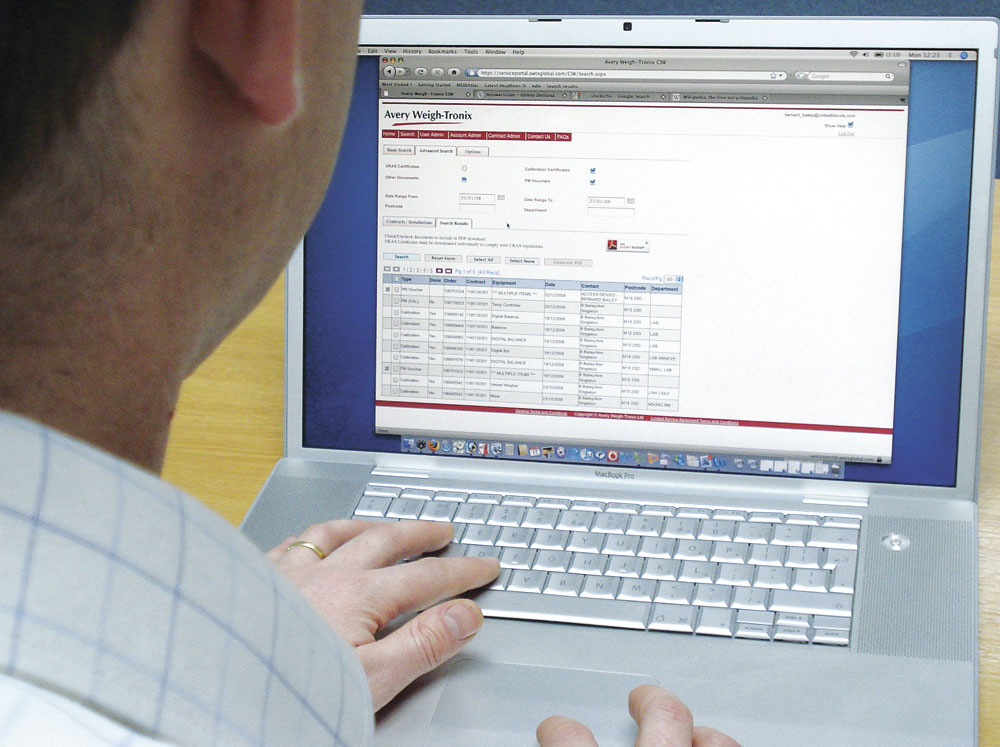A Question Of Standards

Weighing data is critical for any quarry operator. With a wide range of weighing systems available, how can a company be sure that the associated software is up to standard, asks Simon Hallam, global product manager at Avery Weigh-Tronix
In the book The Valley of Fear, Sherlock Holmes observed: ‘The temptation to form premature theories upon insufficient data is the bane of our professional lives’. While he was not talking about process efficiency in modern business, this quote illustrates the importance of data to make informed decisions.
Weighing equipment is at the centre of such data. Whether you subscribe to ‘Lean Manufacturing’, Six Sigma, Kaizen or just plain common sense, you must be able to measure the impact of a decision before and after its implementation.
Most weighbridge manufacturers will offer weighing systems, implying that they provide both hardware and software. This makes sense as experts in weighing technology can advise on the best way to use and report data, based on extensive experience.
These same suppliers will then maintain and service both the hardware and offer software support. Again, this makes sense. They should understand their systems and have easy access to parts.
However, how many times do you find that it is the software that causes problems rather than the hardware? It may be unnecessarily complicated, be delivered late or perhaps does not interface with your own back office system – whether this is bought in or your own proprietary software.
For a major investment on system-critical equipment, you will, of course, do your homework. For the hardware you may insist that the organization has ISO 9001. This focuses on a company’s ability to provide consistent and conformant products/services. It is process driven to ensure that the organization has the systems in place to achieve consistent standards and to strive for improvement.
In addition, operators need to ensure that the manufactured products conform to relevant standards and are suitable for the application. But we are talking about weighing systems, so what about the software?
ISO 9001 on its own will not ensure that the software developed will satisfy your needs. Software normally evolves and changes more rapidly than hardware. It also needs to be adapted so that it can interface with different systems.
How can you be sure that the chosen supplier will be able to integrate its solutions with yours? The Software Engineering Institute (SEI) at Carnegie Mellon University advocates a process improvement approach called ‘Capability Maturity Model Integration’ (CMMI). This internationally recognized measure allows organizations to have predictable and measurable results.
Just like ISO 9001, CMMI verifies that an organization has the correct processes in place. It was developed because many in industry recognized that the processes adopted by software developers can be chaotic and, as a result, project failures and late delivery are far too common.
Using a CMMI-certified supplier helps to avoid such issues. It means that there is an established quality control process for each development step, as well as better communication since there are established rules and procedures. There is also improved visibility due to better documentation. In addition, the supplier will be using the latest technologies and tools to ensure high quality and lower costs.
The software supplier, of course, should have particular expertise in its chosen area (eg weighing) if it is to provide maximum value. They will need to understand your specific needs and advise accordingly. You need to ensure that you will have the correct data and that you can make sense and use this data constructively.
So, when specifying weighing systems, check your supplier with care. Check that the hardware is what you need and make sure that you do not overlook the software. In the world of software development, CMMI certification ensures that your supplier has the processes in place to best meet your needs.
